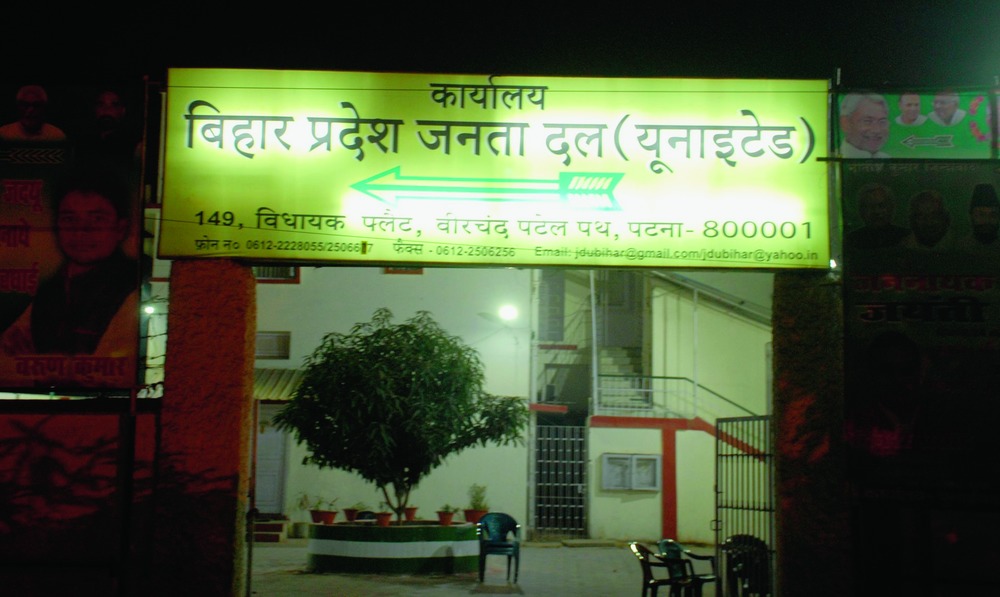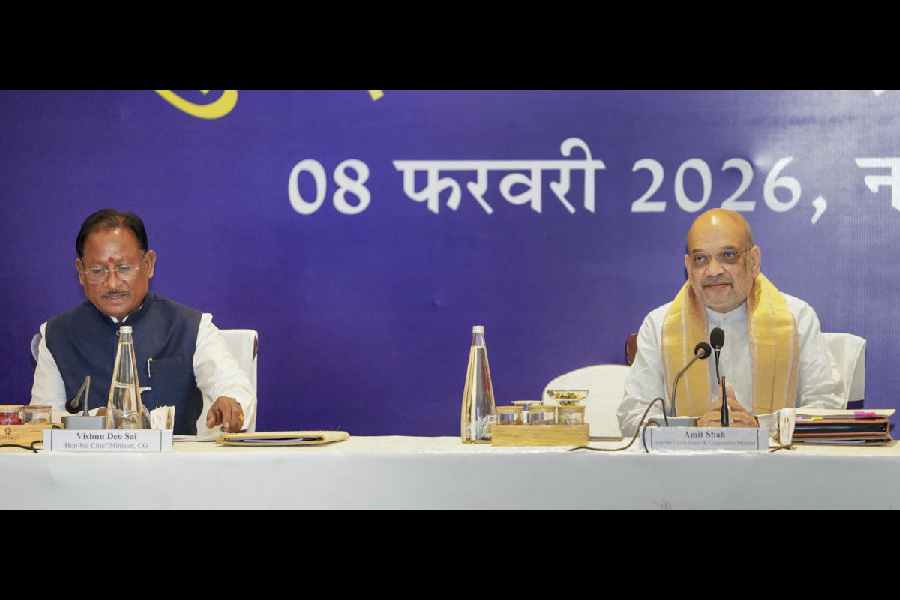
Patna, Jan. 29: The JDU, which supported Narendra Modi's demonetisation as an assault on black money, tops the list of Bihar parties in income from unknown sources.
And Nitish Kumar's party has pipped other big parties such as the RJD and the LJP to the post by miles.
The JDU's total income was Rs 54 crore in the past 11 years, of which Rs 39 crore or 72 per cent is from unknown sources.
In comparison, the Lalu Prasad-led RJD had a total income of Rs 22.5 crore between 2004-05 and 2014-15 of which only Rs 6 crore was from unknown sources, while the LJP earned Rs 6.7 crore of which Rs 4.9 crore was from unknown sources. JDU stood eighth in income among regional parties in India.
It is way behind the Samajwadi Party (SP) of Uttar Pradesh, which had an income of Rs 819 crore of which around Rs 766 crore was from unknown sources between 2004-05 and 2014-15.
The revelations have come in a report released by Association for Democratic Reforms (ADR) and Bihar Election Watch (BEW) today.
It shows that the JDU, RJD and the LJP had an income of Rs 83.4 crore during the period, of which Rs 49.6 crore came from unknown sources.
The report is based on the analysis of parties' income tax (IT) returns and statements filed with the Election Commission (EC) and shows that the sources remain largely unknown.
At present, political parties are not required to reveal the name of individuals or organisations who donate or contribute less than Rs 20,000. As a result, over two-third of their funds cannot be traced and are considered to be from unknown sources.
"Political parties need access to money to reach out to the electorate, explain their goals, policies and receive inputs from people. But where they receive their funds from indeed matters in weeding out corruption and black money. It is also a matter of transparency," Rajiv Kumar, the state coordinator for ADR and BEW, told The Telegraph.
Reacting to the ADR and BEW reports, JDU spokesperson Neeraj Kumar said: "Our party believes in transparency and accountability of every single paise. We have followed all the rules in this regard as stipulated by the EC. If the EC and the central government change the rules, we will abide by them."
Neeraj said it was a known fact that elections across the country were witnessing the increasing impact of money power and laws should be made to check it.
"We also believe that declaration of wealth of public representatives only is not enough. They should declare their sources of income and assets and show how their movable and immovable properties increase by 500-600 per cent in a few years," he added.
The contribution statements, submitted by the political parties declaring names and other details of donors who contribute above Rs 20,000, are the only known sources of income.
The unknown sources are income declared in the IT returns but without giving source of income for donations below Rs 20,000. Such unknown sources include sale of coupons, Aajiwan Sahayog Nidhi (lifelong assistance funds), relief fund, miscellaneous income, voluntary contributions, contribution from meetings, among others.
The details of donors of such voluntary contributions are not available in the public domain.
Known sources of income include sale of moveable and immoveable assets, membership fees, delegate fee, bank interest and sale of publications.










